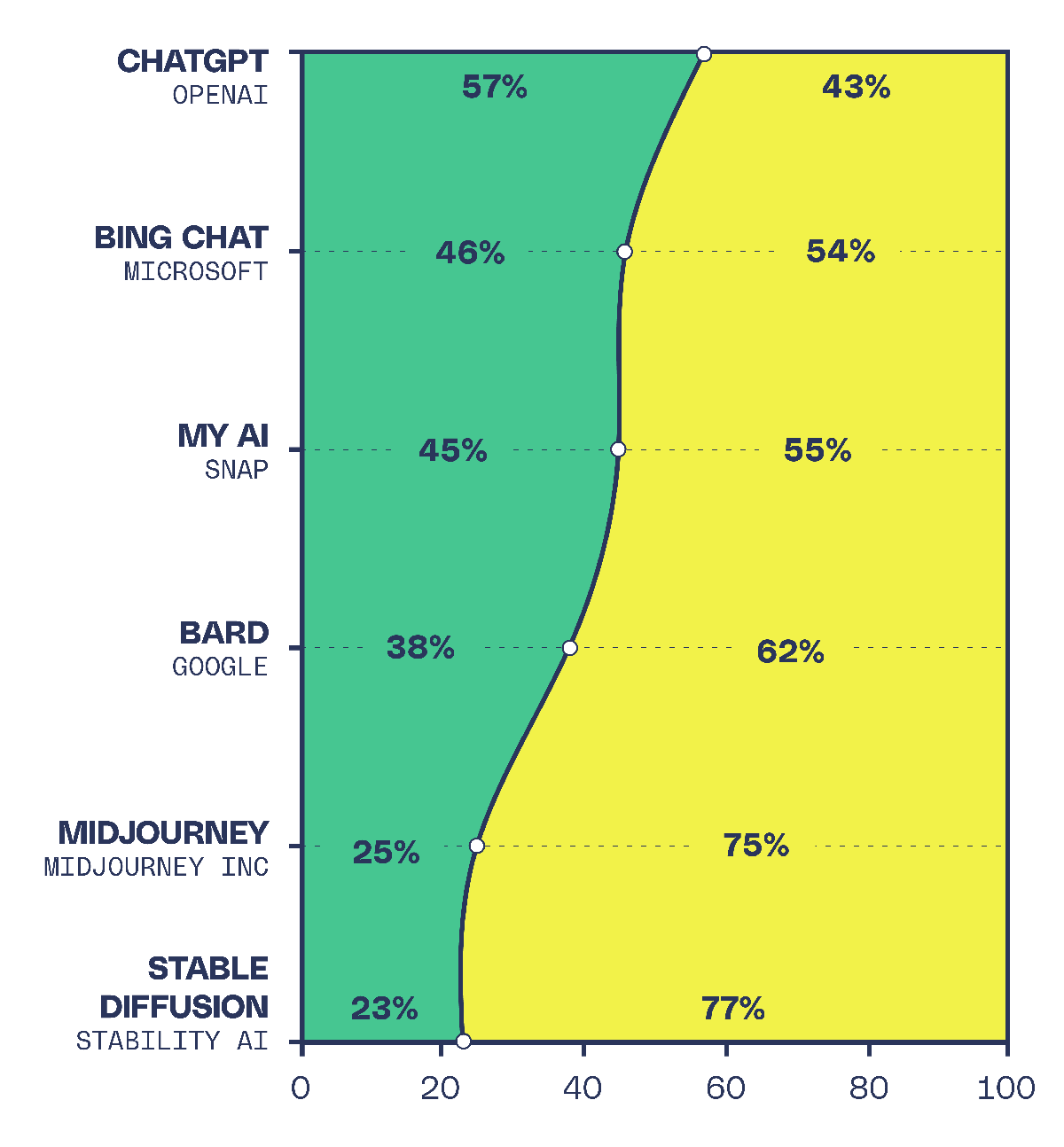Hope, fear, and AI
Who’s using AI?
AI is suddenly everywhere. Image generators and large language models are at the core of new startups, powering features inside our favorite apps, and — perhaps more importantly — driving conversation not just in the tech world but also society at large. Concerns abound about cheating in schools with ChatGPT, being fooled by AI-generated pictures, and artists being ripped off or even outright replaced.
But despite widespread news coverage, use of these new tools is still fairly limited, at least when it comes to dedicated AI products. And experience with these tools skews decidedly toward younger users.
Most people have heard of ChatGPT. Bing and Bard? Not quite.

| Tool | I’ve used it | I’ve heard of it | I’ve never heard of it |
|---|---|---|---|
| ChatGPT | 20% | 37% | 43% |
| Bing w/ ChatGPT | 12% | 34% | 54% |
| My AI (Snapchat) | 12% | 33% | 55% |
| Bard (by Google) | 10% | 28% | 62% |
| Midjourney | 7% | 18% | 75% |
| Stable Diffusion | 6% | 17% | 77% |
Only 1 in 3 people have tried one of these AI-powered tools, and most aren’t familiar with the companies and startups that make them. Despite the many insurgents in the world of AI, like Stability AI and Midjourney, it’s still the work of Big Tech that substantially steers the conversation. OpenAI is the major exception — but arguably, thanks to its market cap and deals with Microsoft, it is itself now a member of the corpo-club.
AI use is dominated by Millennials and Gen Z

| Boomers: 4.8 million | Gen X: 15.8 million | Millenial: 36 million | Gen Z: 34.9 million |
One complicating factor, though, is that the definition of an AI tool is extremely fuzzy. We asked respondents about dedicated AI services like ChatGPT or Midjourney. But many companies are adding AI features to established software, whether that’s image generation in Photoshop or text suggestion in Gmail and Google Docs. And as the joke goes, AI is whatever computers haven’t done yet, meaning yesterday’s AI is, simply, today’s expected features.
Despite the limited usage of these tools so far, people have high expectations for AI’s impact on the world — beyond those of other emergent (and sometimes controversial) technologies. Nearly three-quarters of people said AI will have a large or moderate impact on society. That’s compared to 69 percent for electric vehicles and a paltry 34 percent for NFTs. They’re so 2021.
Will these technologies have a big impact on society?

| AI | Electric vehicles | Virtual Reality | AR | NFTs | |
|---|---|---|---|---|---|
| Large/Moderate Impact | 74% | 69% | 60% | 52% | 34% |
Read the full article Here


